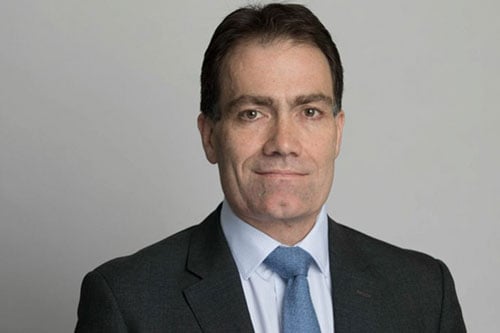

Following David Thodey’s recent report, commissioned by the NSW government to review the state’s funding, the Insurance Council of Australia (ICA) has echoed his calls for reforms.
Campbell Fuller (pictured), head of media and communications at the ICA, says the NSW revenue arrangements, in comparison to other Australian states and territories, are unjust.
“State governments are largely funded by revenue that the federal government collects from the GST,” Fuller said. “The amount of money in each state is complex and is also controversial because many states feel that their residents are paying more tax than others and they think they should be getting more of that back through the state government.”
As part of his report, Thodey looked at the various forms of tax the NSW government has in place. These include Stamp Duty on properties, Stamp Duty on insurance policies and the Emergency Services Levy (ESL). All states and territories, except the ACT, have Stamp Duties on insurance policies – a policy Fuller says acts as a disincentive for insurance.
“The general insurance industry in Australia, via the ICA and other companies at their own level, have been advocating for many years that state taxes on insurance be removed,” he continued.
“There’s no reason why taxes should be applied to insurance apart from the GST. They cause under insurance because if insurance is more expensive, then customers are less likely to make sure they’re properly insured and it may lead to non-insurance, where the addition of the taxes just make the costs too expensive.”
This, Fuller claims, acts as a “disservice to householders and small businesses” that aim to ensure their property is protected through insurance and puts insurers in the unpleasant position of having to be “tax collectors.”
The tax on insurance also hinders the NSW economy and its ability to manage the pandemic and natural disaster season because of the gross underinsurance resulting from the disproportionally high cost of taking out an insurance claim.
“The high cost of small business and household insurance in NSW means the state has a significantly lower level of insurance than other states and territories. Fewer households and fewer small businesses in NSW are insured compared with other states,” Fuller explained.
“As the Thodey review points out, there is a direct link between the high costs of the impact of the taxes in NSW and the willingness of NSW residents to either take out insurance or, if they’re going to take it out, make sure they have enough.”
The only state or territory to have removed Stamp Duties on insurance is the ACT, which transitioned away from the revenue arrangement by reducing the price on a yearly basis until it was eradicated.
However, for NSW residents, it’s a dire situation. Householders are typically paying more than 50% tax on their insurance policies while small businesses are typically paying more than 70% in insurance taxes.
This is a stark comparison to the average of 19.9% and 22% combined taxes charged through the other states and territories.
“The Thodey review says quite clearly: ‘there is no principle case for applying a special tax on insurance’. He said that there’s a serious human and social consequence from the national crisis of underinsurance,” Fuller added.
Instead, Fuller says NSW should follow the transition other states and territories have made to fund their emergency services through property-based levies – not insurance. This will make the funding of such services more equitable.
“This means that the burden of funding emergency services is spread across the entire community rather than being carried by the insurance customers,” Fuller continued. “NSW started to reform the ESL several years ago and then abandoned that reform with only four weeks to go, which cost the insurance industry tens of millions of dollars in compliance, and all those other costs, and meant that insurers were going to have to continue to collect 900 million to a billion dollars a year in taxes.”
Similarly, Fuller says Stamp Duties on insurance are regarded as a “highly inefficient form of taxation” with the Thodey report and other previous reports also making this case consistently for “many years.”
“These reports say there are more efficient methods of taxation that can be applied to make up for the revenue that’s being collected through Stamp Duties,” Fuller said.
Fuller says that while he can’t speak on behalf of the NSW state government, he believes the government is “looking” at the report.
“The Insurance Council and its leaders are urging the leaders, Gladys Berejiklian and Dominic Perrottet, to accept the report’s findings in relation to insurance Stamp Duties and the ESL and prioritise the reform of these taxes,” he said.
